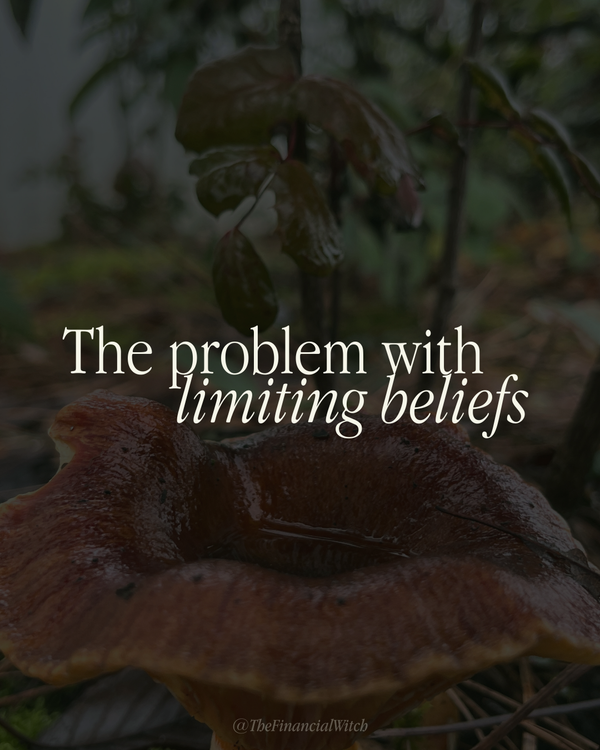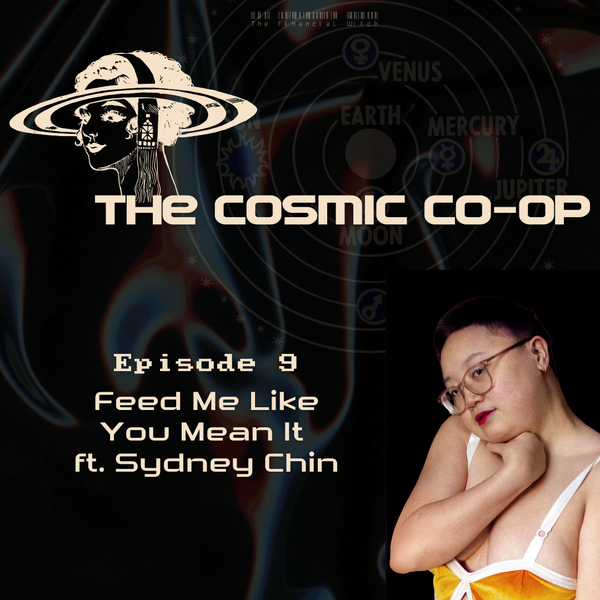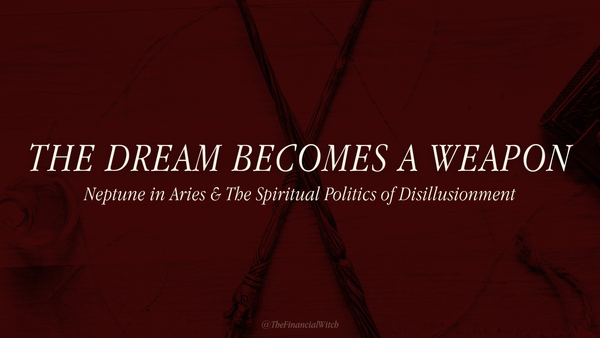The opposite of optimization is interbeing
What if you stopped trying to be efficient and started trying to be symbiotic instead?
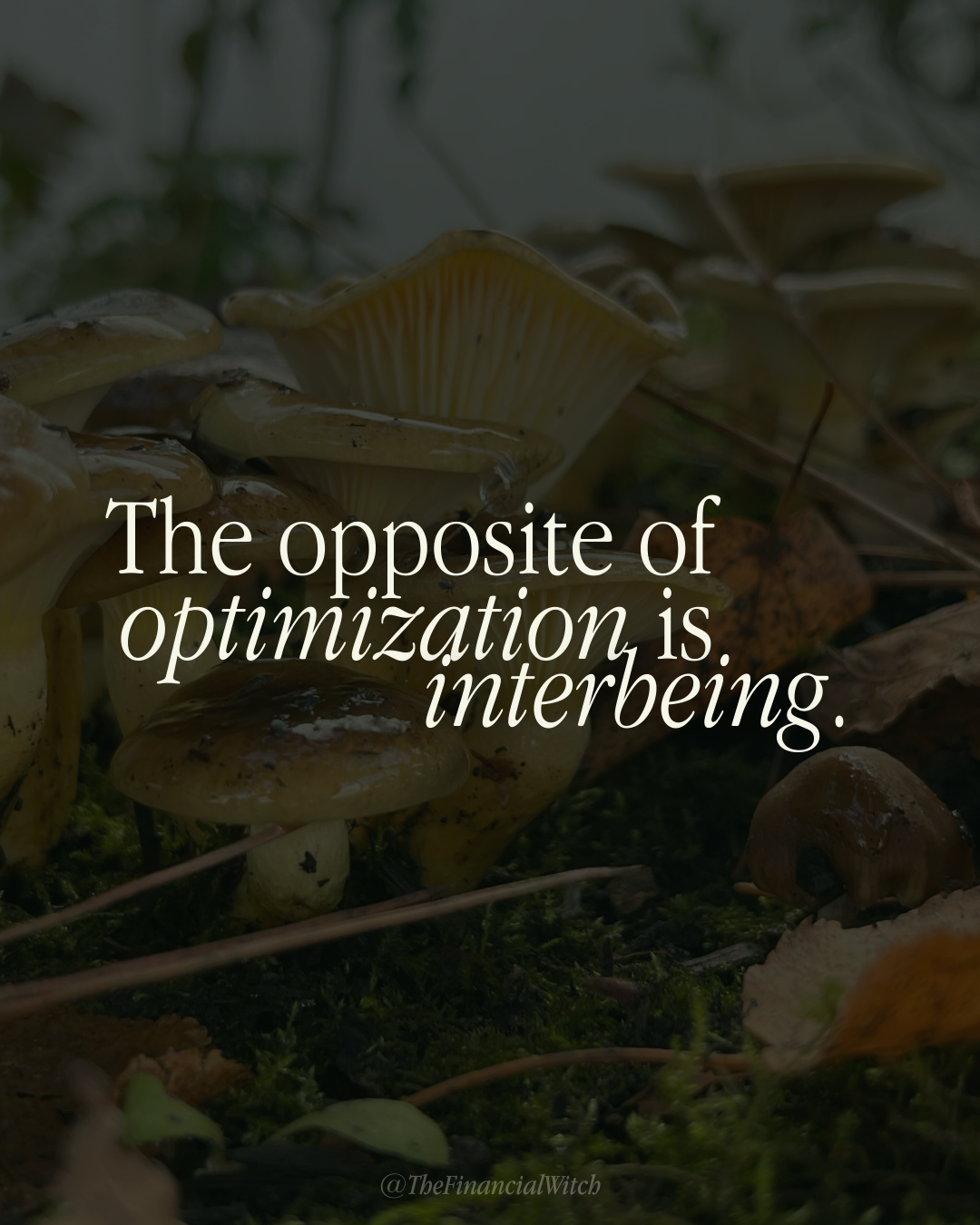
Optimization culture is one of the more obvious fingers on the hand of neoliberal capitalism, but it can be difficult to articulate exactly why the trend of forcing yourself to wake up at 4 am to take an ice bath every day is a tool of oppression. After all, what’s wrong with a little self-improvement? What’s wrong with treating your fleshy body as a computer motherboard to be “bio-hacked” by programming the correct charcoal-activated code into it? What’s wrong with optimizing yourself for maximum energy and productivity?
Part of the problem begins with how we even define “optimized” in a human context—because it’s completely devoid of context.
Optimal functioning is defined as a state reflecting exceptional performance, inner satisfaction, mastery, or subjective well-being. On its face, that sounds like a good thing. And it can be. But the path we’re told leads there—the individual grind toward betterment, the internal tweaks and calibrations, the insistence on effort as the key to freedom—is deeply harmful.
The problem is, we keep treating our human bodies & brains like computers when we’re actually the fruiting bodies of gigantic mycelial systems.
A human being is not a closed-loop performance unit. You cannot reach your fullest expression through willpower alone. You are not optimized by inputs and outputs, but by connection—by being metabolized within a living, breathing web of relationship. Optimization theory erases all of that. It leaves no room for land, grief, illness, timing, or infrastructure. It positions “optimal functioning” as universally measurable and personally achievable, if only you apply the right internal strategies.
Capitalism & computers say the shortest distance between two points is the goal. But mycelial networks don’t move in straight lines; they move through relationship.
Thich Nhat Hanh coined the term “interbeing” when he needed a word that acknowledged the interconnectedness of all beings. He credits the biologist Lewis Thomas for inspiring him through this quote:
We are not made up, as we had always supposed, of successively enriched packets of our own parts. We are shared, rented, occupied. At the interior of our cells, driving them, providing the oxidative energy that sends us out for the improvement of each shining day, are the mitochondria, and in a strict sense they are not ours.
In the same sense that you cannot own another human being, you also do not “own” your own human body; you borrow it from the earth which made you possible. Does the mycelial network own the mushroom? No; it simply participates in the conditions that make the mushroom possible. Much like a mushroom, our own fruiting bodies are only a moment in time—another borrowed element, and another abstract concept which capitalism claims ownership over.
Under capitalism, ownership is the law, thus everything can be privatized and commodified. Humans can harvest moments of mushrooms and exchange them for currency—this is commodification, and it's also survival. In a mycelial network, no part exists independently, therefore every outcome is relational. If the human takes ownership over the mushroom by plucking it from the ground and then commodifies the mushroom by trading it for another resource, which ultimately aids in the human’s well-being, was it ownership or was it symbiosis?
That question doesn’t have a clean answer, but that’s exactly the point. Interbeing asks us to stay inside the mess of mutual reliance, while optimization pushes us to streamline, extract, and move on. One model leaves space for complexity. The other tries to resolve it into output.
The optimization model says: control the inputs, increase the outputs, and efficiency will lead to success. The interbeing model says: your flourishing is inseparable from the web you’re part of. What you fruit is not solely yours, and what you need is not a sign of failure. Mycelial networks distribute resources based on need and communication; no body is isolated. If optimization is a closed circuit, interbeing is an open system. If optimization demands results, interbeing notices conditions. It doesn’t discard the fruiting body, but it refuses to treat the mushroom as the goal.
We don’t need to optimize our way into performing at higher and higher levels. We need to be in relationship long enough to trust that the web is already working—quietly, slowly, beneath the surface—until the time is right for something to emerge.
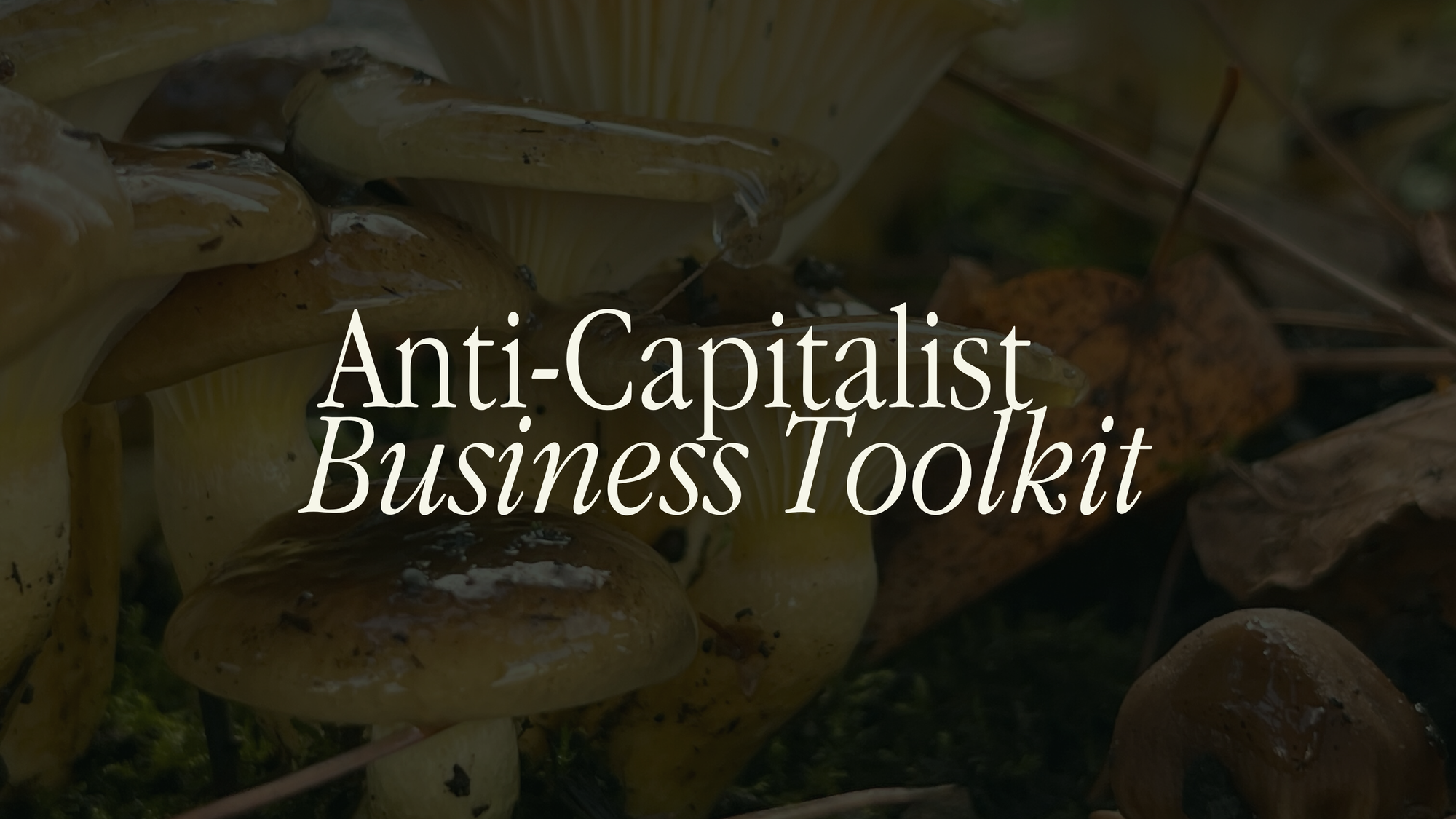
If this resonates, and you’re looking for a way to stay in relationship with your values, your work, and the web around you, I made something for that. The Anti-Capitalist Business Toolkit is a free audio series about business, shame, survival, and emergence. It’s also a set of tools for tending the conditions that help something real take root.
You can start listening here.

